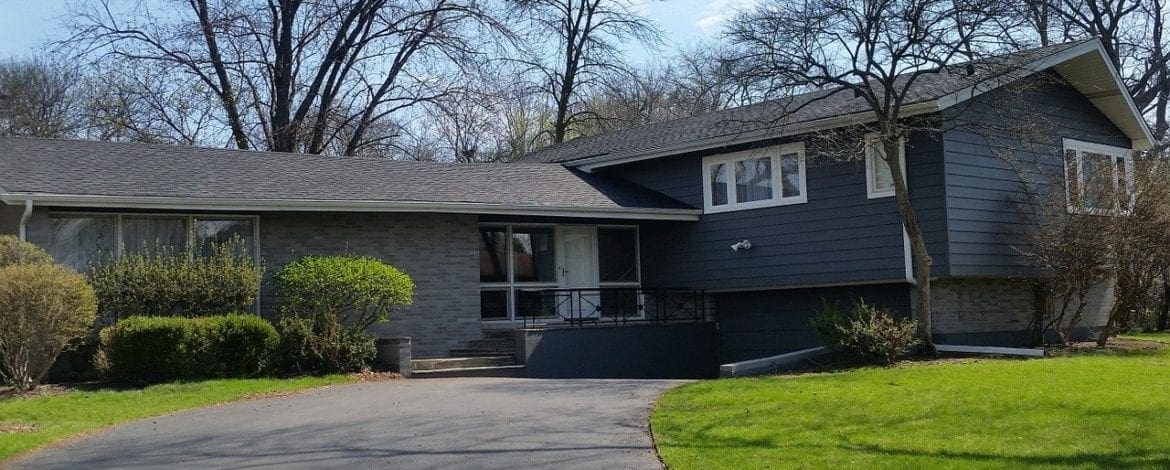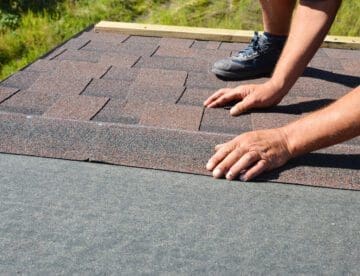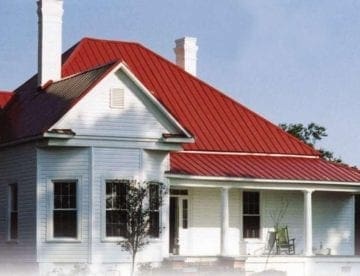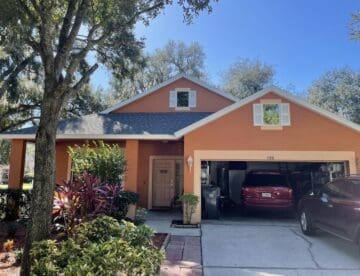Investing in a new roof can be tough on your budget, even if you’ve planned for such an event. If major storms keep damaging your roof, you may wonder if there’s a stronger, more durable roofing material you can use. In recent years, a new type of shingles has gained popularity among homeowners, thanks to its improved damage resistance and durability. Known as impact resistant shingles, these new thick-skinned shingles can make your roof more likely to withstand damage from strong winds and hail storms.
But, just like most innovative products, impact resistant shingles are more expensive than ordinary shingles. We’ve already covered the best shingles for Florida roofs. But in this article, we’ll dig deeper into the topic of impact resistant shingles. Our detailed review of impact resistant shingles will uncover the pros and cons of this roofing material to help you decide if they’re worth the cost.
What are impact resistant shingles?
If you live in an area in the US with a tropical or subtropical climate, then you know how important it is to have a high quality, reliable roof over your head. With this in mind, impact resistant shingles are currently the best solution for those looking to make their home impervious to extreme weather conditions such as high winds and hail. These shingles are specially designed to withstand more damage and be more resilient in extreme weather conditions.
High winds and hail are the two most significant factors that can cause extreme damage to your house and leave you without an intact roof over your head. With improved granular adhesion, impact resistant shingles have proven to be superior over regular shingles. This is especially true for homeowners who live in areas prone to extreme temperatures and harsh weather conditions.
What are impact resistant shingles made of?
Impact resistant shingles are class 4 shingles modified with a specified asphalt formula. They’re the highest-standard shingles available in the industry and can be made from various materials. Most often, the materials used are plastic, aluminum, or copper. The layers most often consist of asphalt and back surfacing.
Impact resistant shingles are made by mixing standard shingles with SBS (styrene-butadiene-styrene. SBS increases the shingle’s impact resistance and provides it with an extended lifespan. If you can’t decide if impact resistant shingles are worth the investment, we’ve narrowed down the biggest pros and cons below. This will help you determine if you should upgrade your roof.
Pros of impact resistant shingles
As the best option on the market for durability, impact-resistant shingles come with many advantages. These types of shingles maintain the highest impact resistance rating in the industry out of all other roofing materials. Below are the most notable pros of impact resistant shingles:
Increased Resilience
The most significant advantage of impact resistant shingles is they’re thicker and sturdier than regular asphalt shingles. Because the material is rubberized, the shingle will bend slightly under impact and avoid breaking. Its SBS-modified surface keeps it from breaking or tearing apart, even under heavy hail storms or winds that reach 100+ mph.
Expected Lifespan
Regular asphalt shingles have a life expectancy between 15 and 20 years. Impact resistant shingles can last up to 30 years when properly maintained. They have a significantly longer lifespan, mostly due to their enhanced damage resistance. Of course, they’re not impervious to aging, so regular roof maintenance and upkeep should be conducted.
Insurance Discounts
The cost of impact resistant shingles is higher than regular shingles. But it’s a good idea to consider that most roof insurance companies offer a discount on your homeowner’s insurance if you have this type of shingle installed. This is another aspect that helps you save money over time if you decide to go with impact resistant shingles.
Impact resistant shingles offer many advantages over regular shingles, but there are some misconceptions associated with them. The most common one is that they are impact-proof. While they are resistant to hail and strong winds, keep in mind that your resistant shingles may still get dented at heavy impact points. However, this is where their main benefit comes into play. Since they’re rubberized, the resistant shingles are far less likely to crack on substantial impact.
Cons of Impact Resistant Shingles
Impact resistant shingles don’t have any glaring flaws that could be a deal-breaker for homeowners, except one thing — their price. Class 4 impact resistant shingles are more expensive than regular shingles. In fact, compared to Class 1 shingles, they can cost nearly double. This initial investment is the main reason why more homeowners aren’t upgrading to impact resistant shingles.
With this said, even though they’re more expensive to install, impact resistant shingles will lower your maintenance costs due to their durability. Since they’re more reliable, you’ll also be less likely to have problems regarding premature roof replacement. Overall, the pros heavily outweigh the cons. So if your current budget allows, going with impact resistant shingles is the best choice for your Florida roof.
Should you upgrade to impact resistant shingles?
As we’ve mentioned before, most homeowners looking to upgrade to impact resistant shingles base their decision on the cost of installation. If you live in an area prone to hurricanes, you should consider installing them on your roof if you can afford it. The initial costs of the investment may be a bit higher compared to regular shingles. But you’ll be saving money in the long run. Plus, knowing your roof is well-equipped to withstand a hurricane can give you priceless peace-of-mind.
If you choose you to make an upgrade and install impact resistant shingles, make sure that everything is done correctly. Do your research and pick a contractor you can trust. If you have more questions about impact resistant shingles and roof replacement, feel free to contact us at any time. We offer a free roof estimate to all of our first-time customers. Simply who fill out our short contact form or call us at 813.373.9088.




